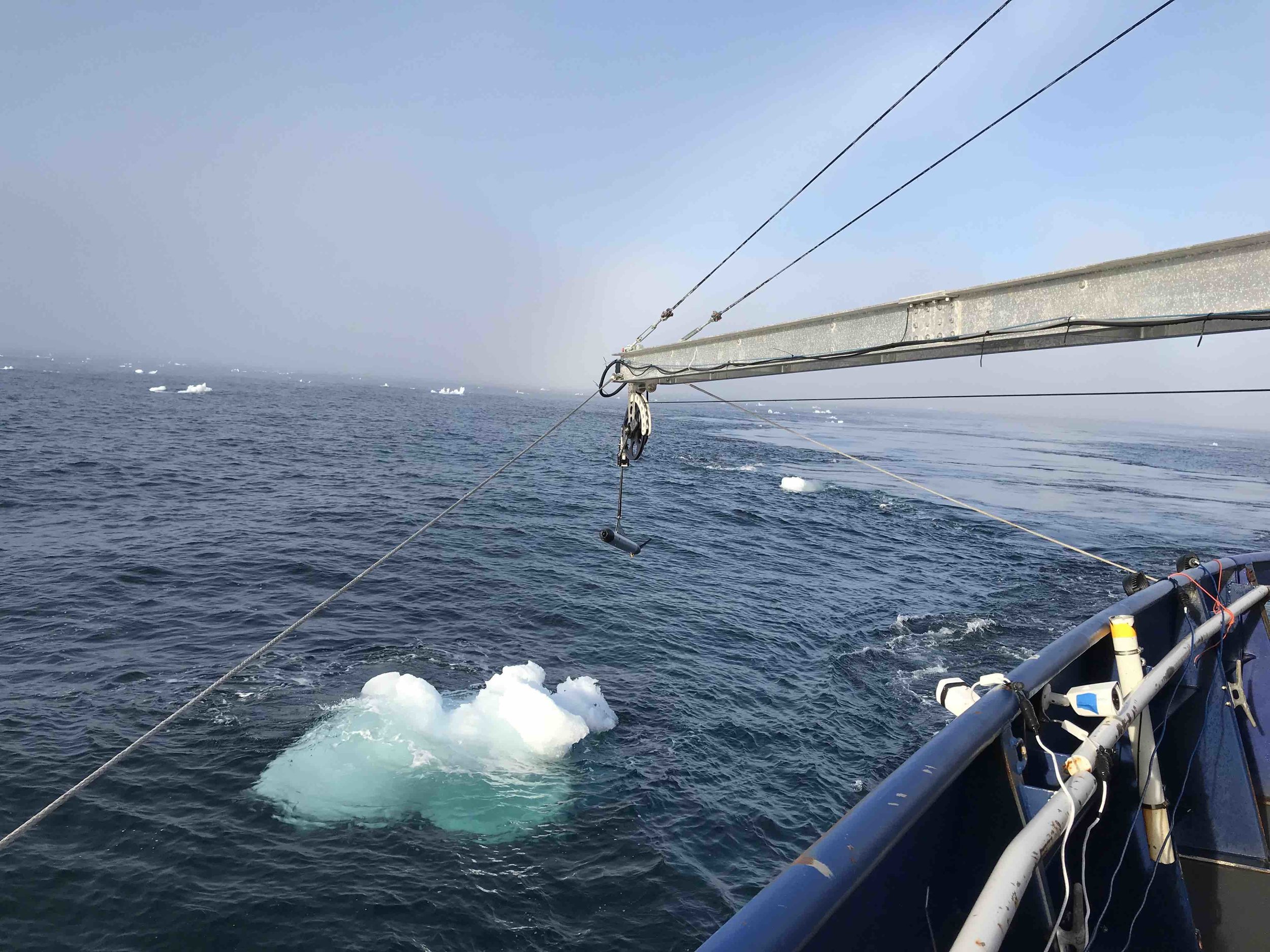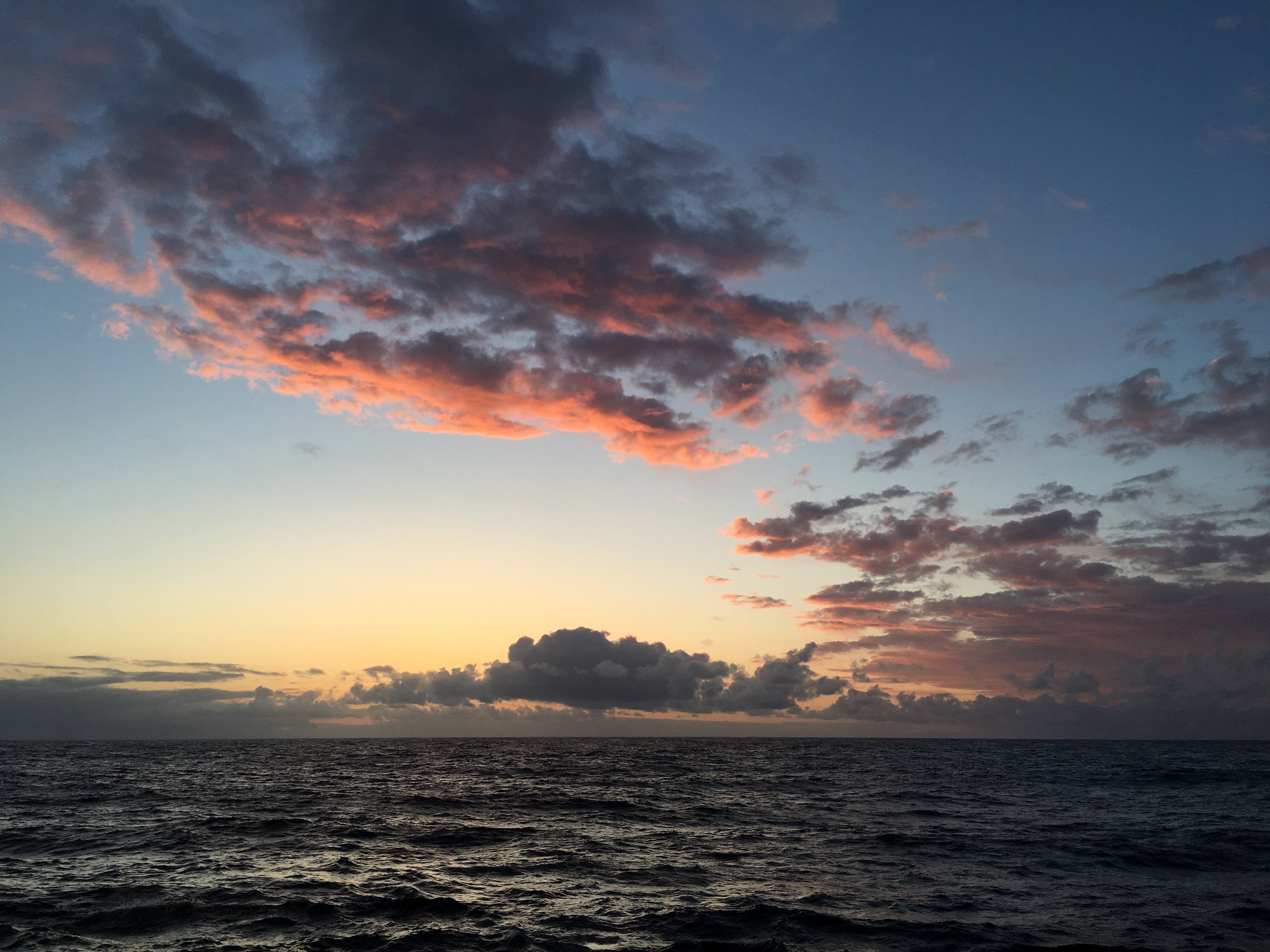The Fast CTD encounters ice for the first time.
Arctic Aloha
We've spent the last few days in Nome, Alaska, loading the R/V Sikuliaq and preparing to set sail. We have been gifted with unusually warm sunny weather, and are celebrating with Aloha Friday. We set sail tomorrow morning for points further north, wish us luck!
Photo: Members of the MOD group Jen MacKinnon, Giulio Meille, honorary member Ben Barton (Bangor U.), Effie Fine, Jonny Ladner, Sara Goheen, Nicole Couto, San Nguyen, and Mike Goldin.
Ready.....set....
8 members of the MOD group are gearing up to head to Nome, Alaska next week, with a dozen colleagues from other universities, to embark on a month-long expedition to study the Arctic Ocean. The project is an Office of Naval Research funded experiment entitled the "Stratified Ocean Dynamics of the Arctic (SODA)". One of the main goals is to understand what processes set the amount and distribution of heat in the Arctic ocean, and how that accumulated ocean heat might or might not be responsible for the observed accelerating rate of Arctic sea ice loss. We'll add a series of posts once we get underway with more details of the science, instruments, people, and maybe even a polar bear sighting! Bu to start us off, here's an image from the the National Snow and Ice Data Center (http://nsidc.org/arcticseaicenews/). It's a map of the Arctic Ocean as would be seen from above (satellite). The white area is where there is currently sea ice as of today, August 24th. The orange line is where the sea ice extent used to be, on average. There's a lot less now, which has significant implications for not only the Arctic ecosystem and the human population surrounding it, but the global climate as well. We are hoping that some of the secrets we uncover will help us not only understand what's happening now, but more accurately predict how this will play out as the earth continues to warm. Stay tuned!
The Epsilometer and the biological hotspots ...
In April 2018, a team of Scripps graduate students designed a 3 days experiment on the R/V Sproul in order to explore a biological hotspot south of San Clemente Island, only a few miles west of San Diego. This area is known to support large populations of demersal and pelagic fish, such as rockfish and tuna. While both the scientific and local fisheries communities are well aware of such biological productivity, little is known about the physical mechanisms that aid the high productivity at this site. The students proposed to investigate the flow in order to test several hypotheses and determine the physical mechanism that drives the elevated biological productivity.
In addition to the Del Mar mooring recovery and deployment of a WireWalker, the students tested new sensors developed by Scripps physical oceanographers Matthew Alford and Arnaud Le Boyer. Dubbed the epsilometer or “epsi,” the device uses advances in electronics borrowed from the cell phone industry to measure water turbulence (epsilon) in a low-cost, low-power manner. 🎥: Isabela Le Bras
Iceland cruise: survived
Team MOD successfully deployed two wire walkers, the fast CTD and two epsi-fish microstructure profilers in challenging conditions (up to 50 knot winds and 8-m seas) on R/V Armstrong.
We learned much about the generation of internal waves and the modulation of mixed-layer turbulence by the wind - and the effects of the wind on the ship and its scientists!
MOD PIs chair first-ever Gordon conference on Ocean Mixing
Last week, the very first Gordon conference on ocean mixing took place in Andover, NH. 167 participants from all over the world learned about the state of the art of our field and its impact on other fields. It was enlightening, inspiring and a lot of fun!
8 cruises, 5 oceans
The MOD group has been working for what seems like months now to prepare our gear for 8 cruises in 5 different oceans: The Gulf of Mexico, The South China Sea, the Arctic, the Atlantic and the Indian Ocean. We've now shipped 5 containers to various places and built several new systems that didn't exist before.
We are tired.
And so far, things are going OK.







